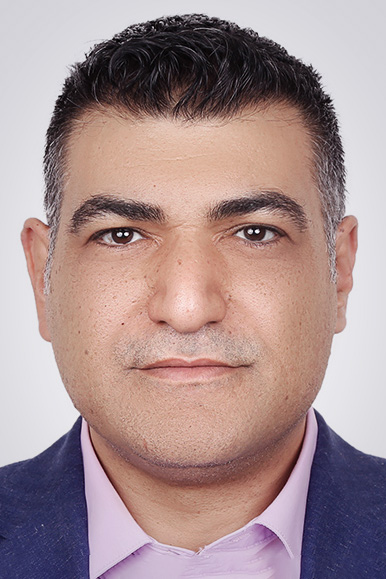

DNS |
Sponsored by |

|
 ICANN's proposed overhaul of root server governance would empower a new council to revoke America's operator status, risking a clash with a resurgent Trump administration and potentially imperiling the multistakeholder model that underpins the internet's core infrastructure. more
ICANN's proposed overhaul of root server governance would empower a new council to revoke America's operator status, risking a clash with a resurgent Trump administration and potentially imperiling the multistakeholder model that underpins the internet's core infrastructure. more
 Meltnet envisions a federated internet model led by BRICS nations, combining digital sovereignty with cross-border interoperability. It challenges US-centric governance by proposing a trust-based architecture rooted in shared standards and mutual recognition. more
Meltnet envisions a federated internet model led by BRICS nations, combining digital sovereignty with cross-border interoperability. It challenges US-centric governance by proposing a trust-based architecture rooted in shared standards and mutual recognition. more
 Internet governance is shifting from participatory forums to security-driven mandates. As authority accelerates ahead of legitimacy, technical systems face growing instability and operators absorb the risks of politically motivated control. more
Internet governance is shifting from participatory forums to security-driven mandates. As authority accelerates ahead of legitimacy, technical systems face growing instability and operators absorb the risks of politically motivated control. more
 As ICANN prepares to expand the domain name space, calls grow for a public-law framework to govern the DNS root, ensuring global equity, transparency, and accountability in managing the Internet's core infrastructure. more
As ICANN prepares to expand the domain name space, calls grow for a public-law framework to govern the DNS root, ensuring global equity, transparency, and accountability in managing the Internet's core infrastructure. more
 The arrangements regarding the composition and organisation of the provision and operation of authoritative root servers are one of the more long-lasting aspects of the public Internet. In the late 1980s, Jon Postel, as the IANA, worked with a small set of interested organisations to provide this service. It was informally arranged, without contracts and without payment of any form. more
The arrangements regarding the composition and organisation of the provision and operation of authoritative root servers are one of the more long-lasting aspects of the public Internet. In the late 1980s, Jon Postel, as the IANA, worked with a small set of interested organisations to provide this service. It was informally arranged, without contracts and without payment of any form. more
 What happens when governments don't just regulate content, but forcibly repurpose the very guts of the Internet's infrastructure to enforce their policies? The chilling answer, increasingly evident worldwide, is widespread, devastating collateral damage. Around the world, neutral systems like Domain Name System (DNS) resolvers and IP routing, the bedrock of our digital lives, are being weaponized as enforcement tools. more
What happens when governments don't just regulate content, but forcibly repurpose the very guts of the Internet's infrastructure to enforce their policies? The chilling answer, increasingly evident worldwide, is widespread, devastating collateral damage. Around the world, neutral systems like Domain Name System (DNS) resolvers and IP routing, the bedrock of our digital lives, are being weaponized as enforcement tools. more
 "GOD, at least in the West, is often represented as a man with a flowing beard and sandals. Users of the Internet might be forgiven for feeling that nature is imitating art — for if the Net does have a god he is probably Jon Postel" (The Economist, Feb. 1997) David W. Maher, Senior Vice President, Law and Policy of Public Interest Registry (PIR) offers his reminiscence of the early days of the Internet and attempts made to restructure the Domain Name System — an article he has entitled 'Reporting to God'. more
"GOD, at least in the West, is often represented as a man with a flowing beard and sandals. Users of the Internet might be forgiven for feeling that nature is imitating art — for if the Net does have a god he is probably Jon Postel" (The Economist, Feb. 1997) David W. Maher, Senior Vice President, Law and Policy of Public Interest Registry (PIR) offers his reminiscence of the early days of the Internet and attempts made to restructure the Domain Name System — an article he has entitled 'Reporting to God'. more
 There's a well-documented crisis facing the domain name system: very few who rely on domain name registration data from the Whois database to perform vital functions can do so any longer, which is escalating consumer harm and abuse on the internet worldwide. And the problems, thanks to ICANN's overly restrictive policy post-GDPR and a failing policy process, are piling up. more
There's a well-documented crisis facing the domain name system: very few who rely on domain name registration data from the Whois database to perform vital functions can do so any longer, which is escalating consumer harm and abuse on the internet worldwide. And the problems, thanks to ICANN's overly restrictive policy post-GDPR and a failing policy process, are piling up. more
The collection and disclosure of DNS registration data have evolved chaotically, influenced by GDPR and other privacy laws. The system, while improving privacy, has enabled bad actors and raised costs for registrars and registries. Join experts at this event as they explore Project Jake's framework for balancing privacy with legitimate data needs, emphasizing policy clarity, efficiency, and adaptability. more
 Abusive behavior that leverages the domain name system (DNS) continues to be a problem, with a reach that has been widely and credibly documented. There is little doubt that bad actors continue to use the DNS for nefarious and costly purposes. While the amendments made in 2024 to ICANN's Registry Agreement (RA) and Registrar Accreditation Agreement (RAA) were a step in the right direction, more advanced tools are needed to bring abuse rates down. more
Abusive behavior that leverages the domain name system (DNS) continues to be a problem, with a reach that has been widely and credibly documented. There is little doubt that bad actors continue to use the DNS for nefarious and costly purposes. While the amendments made in 2024 to ICANN's Registry Agreement (RA) and Registrar Accreditation Agreement (RAA) were a step in the right direction, more advanced tools are needed to bring abuse rates down. more
 The European Union (EU) has set a high bar by tackling domain name system (DNS) abuse head on via government regulation and seems to have successfully resisted attempts to water down DNS stewardship obligations. Recent guidance from a key European Commission cooperation group (the NIS Cooperation Group) handling sections of the Network and Information Security Directive (NIS2) intends for a robust implementation of Article 28, which will go a long way toward helping to mitigate some of the longstanding problems that persist in the DNS. more
The European Union (EU) has set a high bar by tackling domain name system (DNS) abuse head on via government regulation and seems to have successfully resisted attempts to water down DNS stewardship obligations. Recent guidance from a key European Commission cooperation group (the NIS Cooperation Group) handling sections of the Network and Information Security Directive (NIS2) intends for a robust implementation of Article 28, which will go a long way toward helping to mitigate some of the longstanding problems that persist in the DNS. more
 ICANN must act now to harmonize its domain name registration data (commonly known as WHOIS) policies with Article 28 of the European Union's Network and Information Security (NIS2) directive, first to adhere to applicable laws as it fulfills its oversight responsibilities and, second, to keep its word to the community to preserve WHOIS to the fullest extent possible under law. more
ICANN must act now to harmonize its domain name registration data (commonly known as WHOIS) policies with Article 28 of the European Union's Network and Information Security (NIS2) directive, first to adhere to applicable laws as it fulfills its oversight responsibilities and, second, to keep its word to the community to preserve WHOIS to the fullest extent possible under law. more
 On June 9 CircleID published an insightful article by Thomas Rickert entitled "Demystifying Art 28 NIS2." In that piece Thomas set forth two alternative interpretations of Article 28(6) of NIS2, and argued that TLD registries should not be required to maintain a separate database of the registrant data under NIS2. In my view, Thomas' approach is inconsistent with the remainder of Article 28, and would not achieve the goals of NIS2 to improve cybersecurity across the EU member states. more
On June 9 CircleID published an insightful article by Thomas Rickert entitled "Demystifying Art 28 NIS2." In that piece Thomas set forth two alternative interpretations of Article 28(6) of NIS2, and argued that TLD registries should not be required to maintain a separate database of the registrant data under NIS2. In my view, Thomas' approach is inconsistent with the remainder of Article 28, and would not achieve the goals of NIS2 to improve cybersecurity across the EU member states. more
 On December 14, 2022, the European Parliament adopted the Directive on measures for a high common level of cybersecurity across the Union (Directive (EU) 2022/2555) hereinafter referred to as "NIS2"), which was published in the official journal on December 27, 2022. Being a directive, NIS2 requires transposition into national law. According to Art. 41 of NIS2, the transposition into national law must take place by October 17, 2024 and the measures must be applied as of October 18, 2024. more
On December 14, 2022, the European Parliament adopted the Directive on measures for a high common level of cybersecurity across the Union (Directive (EU) 2022/2555) hereinafter referred to as "NIS2"), which was published in the official journal on December 27, 2022. Being a directive, NIS2 requires transposition into national law. According to Art. 41 of NIS2, the transposition into national law must take place by October 17, 2024 and the measures must be applied as of October 18, 2024. more
 There have been a number of occasions when the Internet Engineering Task Force (IETF) has made a principled decision upholding users' expectations of privacy in their use of IETF-standardised technologies. (Either that, or they were applying their own somewhat liberal collective bias to the technologies they were working on!) The first major such incident that I can recall is the IETF's response to the US CALEA measures. more
There have been a number of occasions when the Internet Engineering Task Force (IETF) has made a principled decision upholding users' expectations of privacy in their use of IETF-standardised technologies. (Either that, or they were applying their own somewhat liberal collective bias to the technologies they were working on!) The first major such incident that I can recall is the IETF's response to the US CALEA measures. more